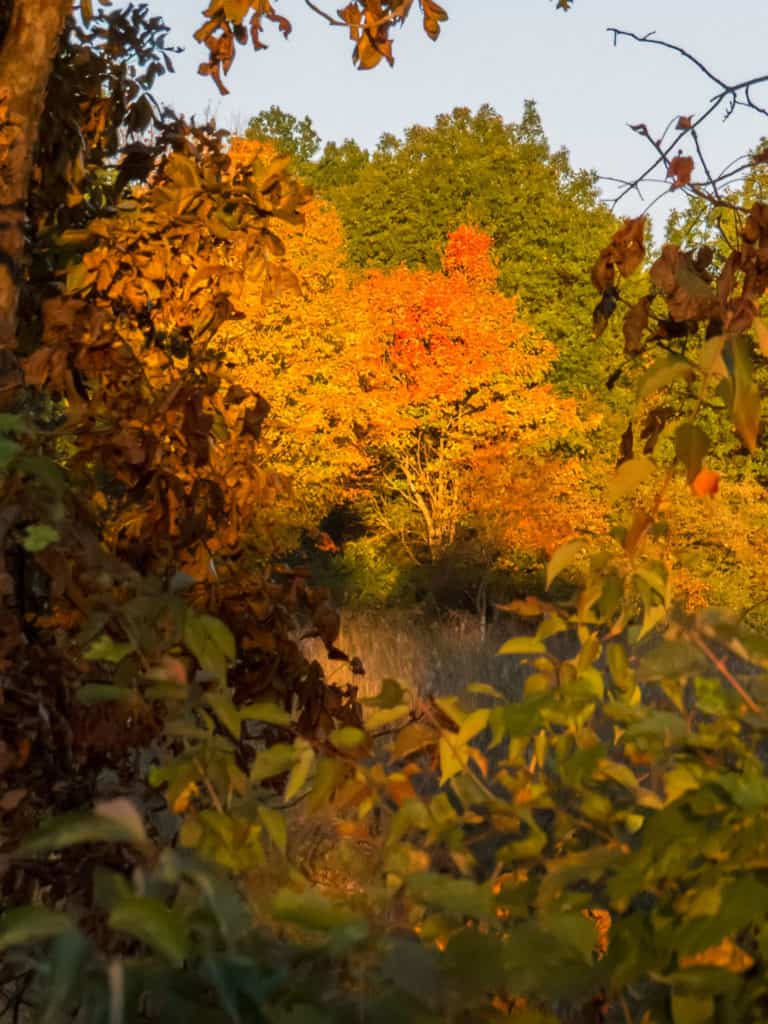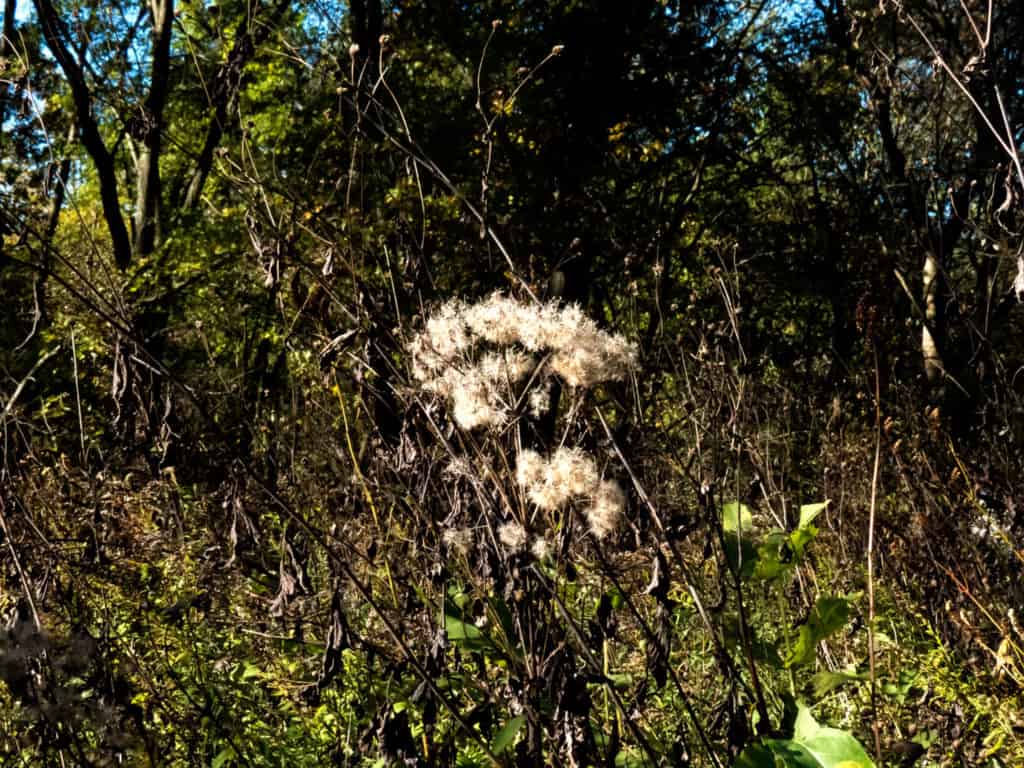Red Lanterns FW Kent Park 10 17 18 by Rick Hollis
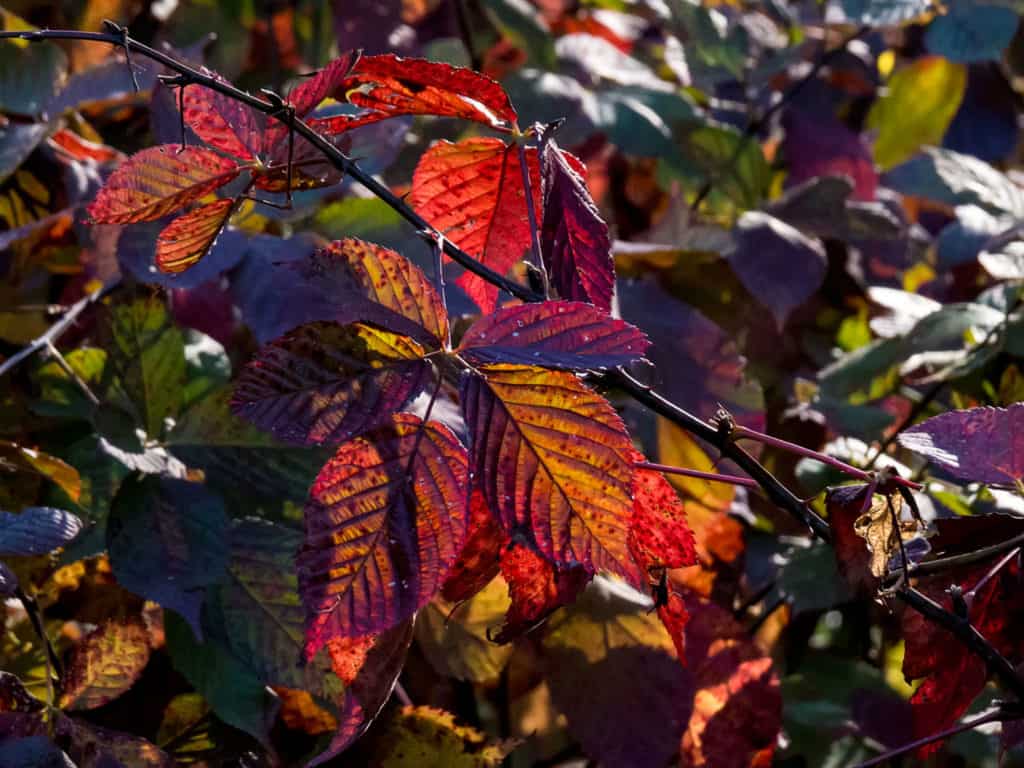
Aldo Leopold’s Red Lanterns
On our way back to the CEC we spied these blackberry leaves. Eric reminded us that Aldo Leopold referred to red bramble leaves as Red Lanterns lighting his way.
F.W. Kent Park, Johnson, Iowa, US
Oct 17, 2018 7:54 AM – 10:43 AM
Our bird walk from 8 to 11 was a wonderful. We saw very few flowers [less and less with every visit] but decent birds. The weather was delightful. A bit chilly [40s] when we started but increasingly nicer as we walked. It was breezy, but there was barely a cloud in the sky.
The four of us saw 30 species (+1 other taxa) on our one mile walk. Much of our time was spent on the incredible numbers Ruby-crowned Kinglets.
Canada Goose 2, Turkey Vulture 2, Osprey 1, Accipiter sp. 1, Red-tailed Hawk 1, Red-headed Woodpecker 1, Red-bellied Woodpecker 4, Downy Woodpecker 1, Northern Flicker 6, Blue Jay 25, American Crow 2, Black-capped Chickadee 2, Tufted Titmouse 2, Red-breasted Nuthatch 1, White-breasted Nuthatch 2, Brown Creeper 1, Ruby-crowned Kinglet 50 [Loose groups 5-10, all moving same direction. All observers agreed with count], Eastern Bluebird 1, European Starling 30, American Goldfinch 41, Fox Sparrow 1, Dark-eyed Junco 10, White-crowned Sparrow 1, White-throated Sparrow 15, Song Sparrow 2, Red-winged Blackbird 500, Brown-headed Cowbird 8, Common Grackle 500, blackbird sp. 1000, Nashville Warbler 1 [Two of us saw it well. Top olive. Head gray. Undersides Yellow at front. Small patch of white. Yellow undertail. Yellow was nearly AMGO yellow], Yellow-rumped Warbler 8, and Northern Cardinal 1. NB For all counties or regions, eBird has lists of what species are expected, and how many are expected. Two species were flagged on today’s walk: Nashville Warbler and the incredible number of Ruby-crowned kinglets.
American Goldfinches were scarce until we hit the bench overlooking the fishing pond. Across the pond, on limbs in and near the water we saw quite a few.
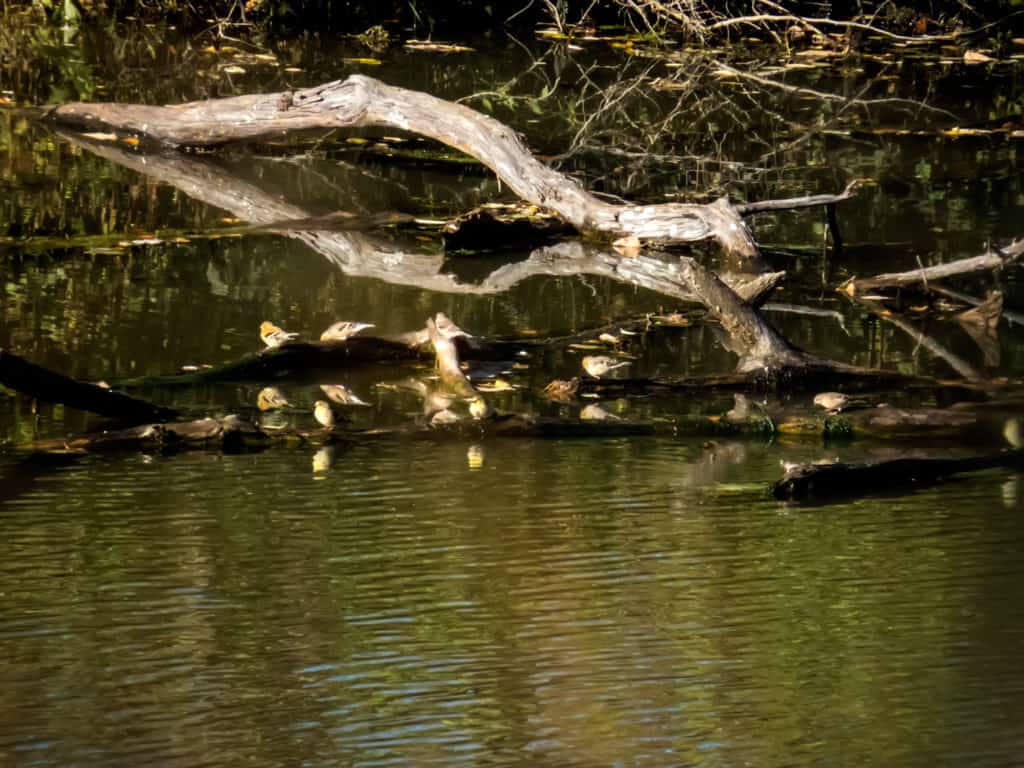
a few of the American Goldfinches we saw.
One of the interesting flowers we did see was this flower. It looks rather like an aster, but I believe it may be False Aster (Boltonia asteroides). It is also called White Doll’s Daisy or False Chamomile.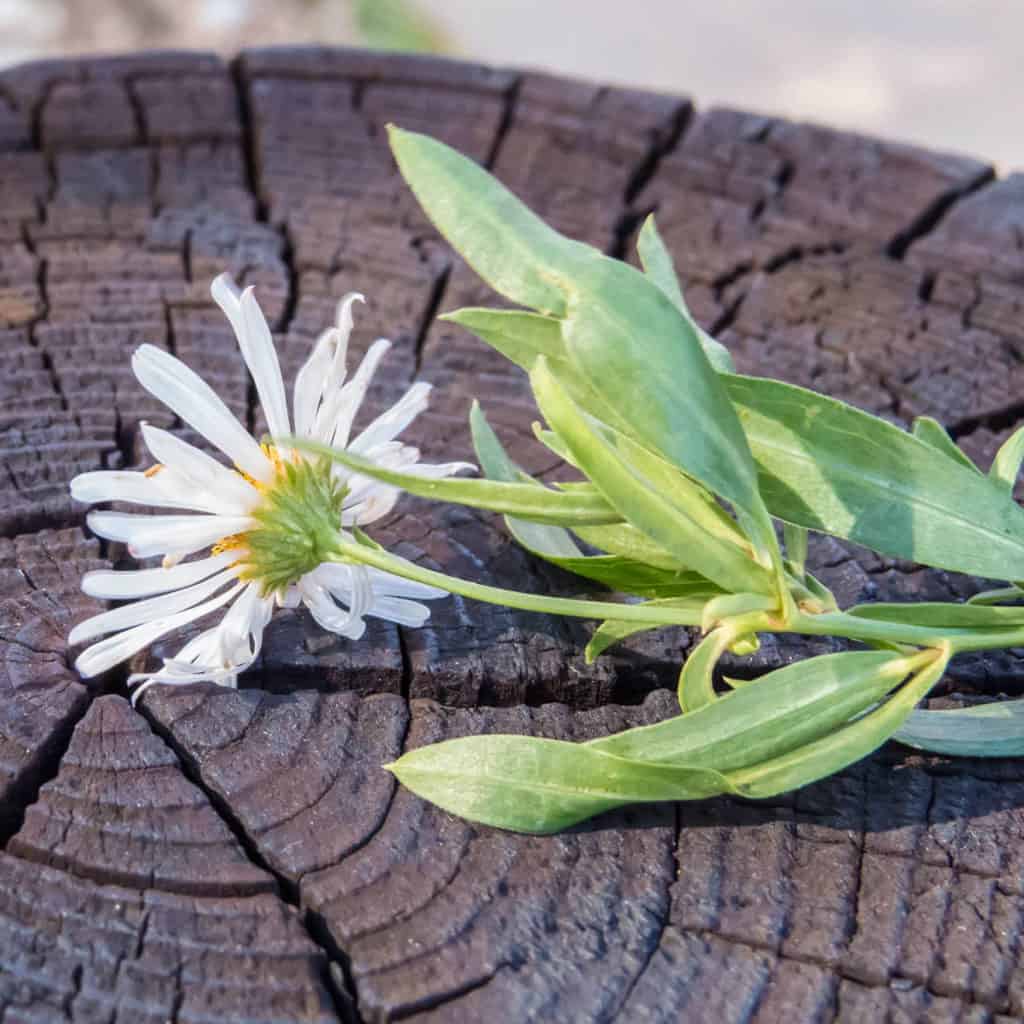
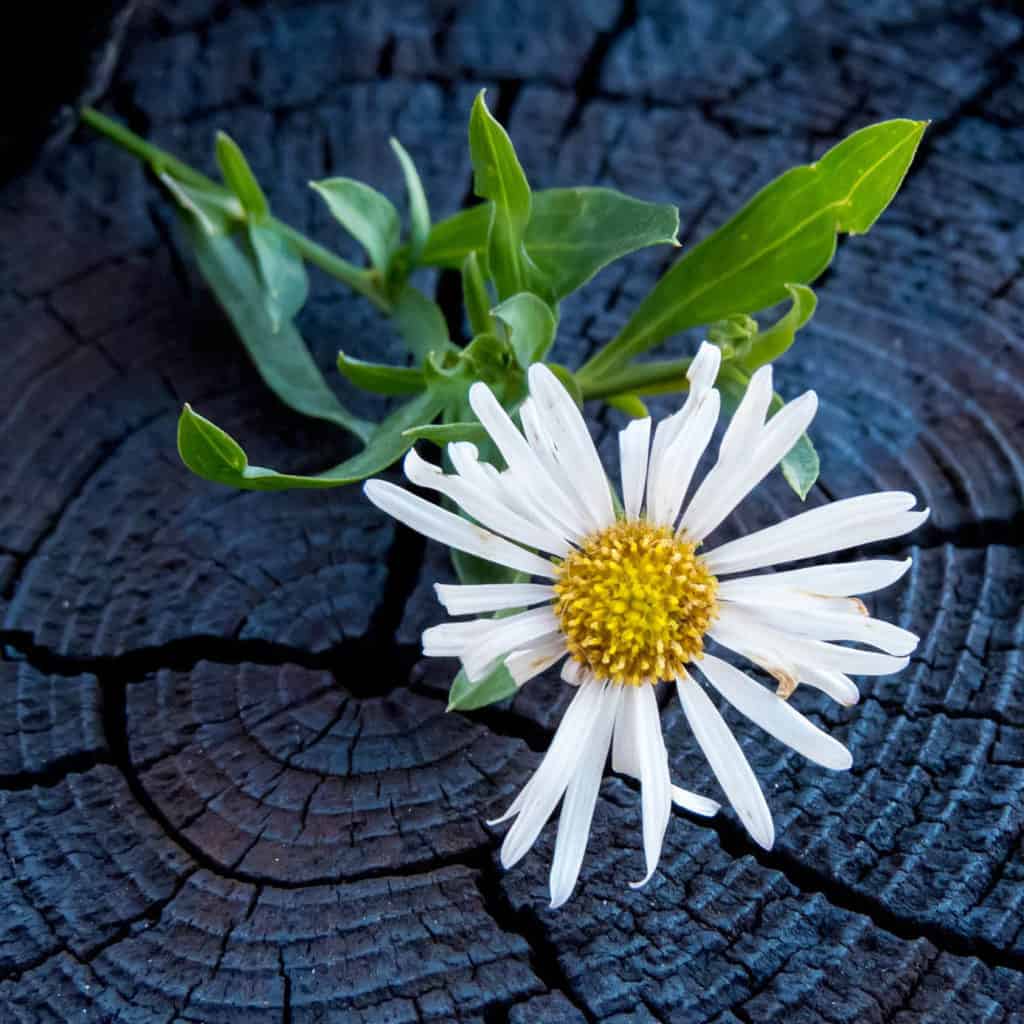
Two more sights from this morning
